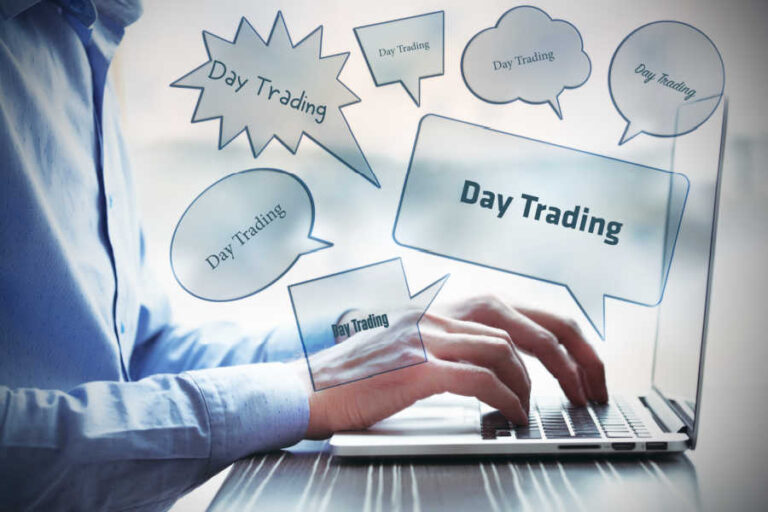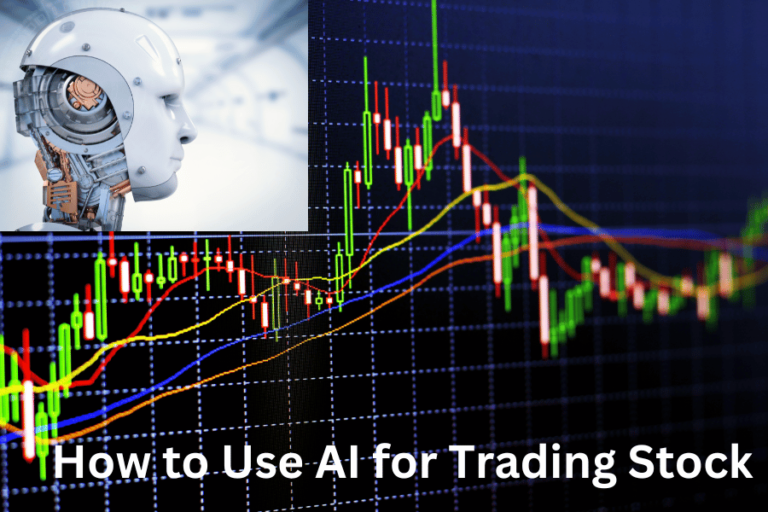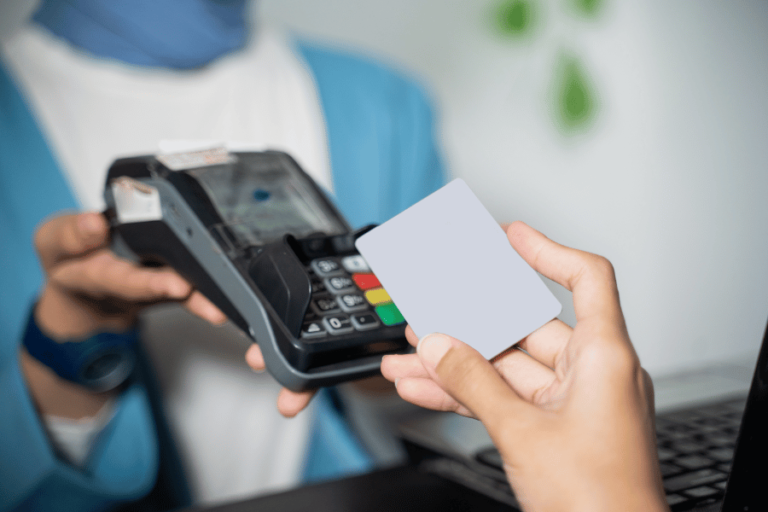Becoming a successful forex trader is like discovering a hidden power within yourself. Forex trading is not just about understanding charts and trends. It is about tapping into your inner Forex god and fearlessly navigating the intricate world of trading.
Join me on this exciting journey as I unveil the valuable wisdom and knowledge that have turned me from an amateur to a skilled trader.
In currency exchange, we’re not just learning but becoming Forex god. Are you ready to unleash your trading prowess and master the art of trade? Let’s dive in.
What is a Forex God?
So, what exactly is a Forex god? It’s not someone who predicts every market move flawlessly; that’s a myth. Instead, traders combine knowledge, strategy, and a profound understanding of themselves.
To become a Forex god, you must synchronize your moves with the market’s pulse. In the upcoming sections, I will be your trusted advisor, unveiling the essential qualities and strategies embodying this esteemed status in the trading world.
How to be a Forex God?
Becoming a forex god is about making money and mastering the art of trade. The forex trading world is fast-paced and involves the potential to quickly win or lose a lot of money. The difference between a beginner and an extraordinary trader goes beyond charts and strategies. A remarkable set of qualities defines it.
My personal experience taught me a valuable lesson. Like many novice traders, I too entered the forex market with the hopes of making fast profits. Nevertheless, I soon realized that achieving success in forex demands more than mere market knowledge.
10 steps to becoming a Forex god:
1. Learn about the Forex market and how it operates.
2. Educate yourself on basic financial concepts and terminology.
3. Develop a trading strategy and set clear goals.
4. Open a brokerage account and choose a reliable trading platform.
5. Practice trading with a demo account to gain experience.
6. Start with small amounts of capital and gradually increase as you become more proficient.
7. Continuously educate yourself and stay updated on market trends and news.
8. Implement risk management techniques to protect your capital.
9. Monitor and evaluate your trades to identify areas for improvement.
10. Be patient and disciplined, as success in Forex trading takes time and practice.
7 Key Traits of a Successful Forex Trader
1. Discipline:
Discipline serves as the bedrock of successful forex trading. Being committed to a clearly outlined trading strategy, steering clear of impulsive choices, and staying consistent in one’s actions exemplify a trader who comprehends the significance of a disciplined approach.
2. Patience:
In the fast-paced world of forex, exercising patience pays off. Successful traders know the value of waiting for the right opportunities. Resisting the urge to chase trades and understanding the market’s cyclical nature is crucial for long-term success.
3. Adaptability:
The forex market is dynamic and ever-changing. Successful traders are adept at adapting to shifting market conditions. Adaptability is crucial for success in the unpredictable forex market, whether it involves adjusting strategies according to market trends or embracing new technologies.
4. Risk Management:
Protecting capital is paramount in forex trading. Successful traders employ effective risk management strategies, determining the appropriate amount of risk in each trade. This safeguards against substantial losses and ensures the preservation of hard-earned gains.
5. Continuous Learning:
The forex market is a vast and evolving landscape. Successful traders recognize the need for continuous learning. A commitment to learning is essential, whether it be in comprehending novel trading tools or keeping up-to-date on worldwide economic events.
6. Emotional Intelligence:
Mastering the psychological aspects of trading is non-negotiable for success. Emotional intelligence is about controlling our emotions, making good choices in tough situations, and learning from our successes and failures.
7. Focus on Long-Term Goals:
Success in forex is a marathon, not a sprint. A successful trader prioritizes long-term goals over short-term gains, knowing that steady and sustainable profits are more advantageous than occasional risky wins. This patient and goal-oriented mindset distinguishes those who ascend to forex god status.
Continuous Learning in the World of Forex
To become a Forex god, you must constantly learn in the constantly changing forex market. The notion that learning is a one-time endeavor couldn’t be further from the truth in this dynamic realm.
1. Embracing Market Dynamics:
Continuous learning begins with a deep understanding of market dynamics. Successful traders understand that various factors shape markets. These include economic indicators, geopolitical events, and technological advancements. Staying informed about these dynamic forces positions a trader to anticipate market movements and make informed decisions.
2. Adapting to Technological Advances:
The forex market has always been receptive to technological advancements. Embracing cutting-edge innovations, such as algorithmic trading and state-of-the-art charting tools, is imperative for ongoing progress. Astute traders recognize the significance of staying ahead of the competition. Using these tools gives them an important advantage in the fast-changing environment, where time is crucial.
3. Evolving Trading Strategies:
What worked yesterday may not work tomorrow. Continuous learning involves a willingness to adapt and evolve trading strategies. Remaining open to refining strategies is crucial for sustained success, whether incorporating new technical indicators or adjusting risk management techniques.
4. Global Economic Awareness:
The forex market and global economies are deeply intertwined. Seasoned traders possess a sharp awareness of international economic events and their possible repercussions on currency markets. Traders must regularly monitor economic indicators, interest rates, and geopolitical shifts to respond to global fluctuations and make informed decisions.
5. Community and Peer Learning:
The Forex community holds immense value as an ongoing source of education. To gain knowledge and insights, engage in discussions, forums, and webinars with other traders. Learning from the experiences of others not only enriches one’s understanding but also fuels personal growth as a trader.
6. Analyzing Past Trades:
Continuous improvement also requires a thorough evaluation of previous trades. Successful traders review winning and losing trades, identify patterns, and learn from mistakes. This self-reflective process enhances decision-making abilities and contributes to ongoing improvement.
In the forex world, where change is constant, continuous learning is not just a strategy but a way of life for those who aspire to achieve ultimate trading success and unleash their inner god of forex.
Maintaining Discipline and Emotional Control
Discipline is the bedrock upon which successful forex trading stands. Having a trading plan is important, but it’s also crucial to stick to a structured approach that can handle the market’s unpredictability.
A disciplined trader sticks to predetermined strategies risk management rules, and avoids impulsive decisions. Sticking to a plan helps handle the ups and downs of forex trading in a consistent and controlled way.
1. Emotional Control:
Mastering emotional control is a non-negotiable skill for any trader aiming for god-like status. The forex market is inherently volatile, and emotions like fear and greed can cloud judgment. Successful traders understand the importance of keeping emotions in check making decisions based on analysis rather than impulsive reactions.
Emotional control helps traders stay calm and resilient in uncertain markets, whether experiencing losses or winning streaks.
2. Developing a Routine:
Developing a trading routine demonstrates discipline. Creating a structured approach involves establishing specific times for research, analysis, and trading activities. A routine instills a sense of order, diminishing the likelihood of impulsive decisions driven by the chaos of the market. Consistently following a routine reinforces discipline, contributing to a more controlled and focused trading mindset.
3. Setting Realistic Goals:
Discipline involves setting realistic and achievable goals. While every trader dreams of substantial profits, setting impractical targets can lead to frustration and hasty decision-making. A disciplined trader sets clear, measurable goals, acknowledging that success in forex is a gradual journey. This pragmatic approach maintains discipline and fosters a patient and goal-oriented mindset.
4. Learning from Mistakes:
Discipline goes hand in hand with a willingness to learn from mistakes. Rather than dwelling on losses, a disciplined trader views them as opportunities for improvement. Each setback becomes a valuable lesson, contributing to the continuous learning process. This ability to extract insights from successes and failures reinforces discipline and resilience in the face of market challenges.
5. Utilizing Risk Management:
Effective risk management exemplifies discipline. Traders should always calculate the capital they are willing to risk on each trade. This way, they can ensure that one trade keeps their entire portfolio safe. This prudent approach safeguards against significant losses, enabling a more controlled and measured trading experience.
Success in forex trading hinges on discipline and emotional control. To attain the status of successful traders, one must prioritize being disciplined, managing emotions effectively, and adeptly navigating market challenges. These skills propel traders closer to achieving the esteemed status of a forex expert.
Effective Risk Management Strategies
Effective risk management is the linchpin of success in the dynamic world of forex trading. A well-crafted trading strategy is complete with a robust risk management plan. Here are key strategies to navigate the uncertainties and protect your capital:
1. Position Sizing:
Properly assessing the size of each position is absolutely crucial for effective managing risks. Using only a small percentage of your trading capital, typically around 1-2%, is a smart strategy. This approach ensures that consecutive losses will not deplete your account, allowing you to protect your capital for future opportunities.
2. Stop-Loss Orders:
Implementing stop-loss orders is akin to having a safety net in the market. Setting predetermined exit points helps limit potential losses. A well-placed stop-loss order is essential for disciplined traders, preventing emotional decision-making and providing an apparent risk-to-reward ratio for each trade.
3. Diversification:
To minimize risk, it is essential not to concentrate all your resources in one place. By diversifying your trades across various currency pairs and assets, you can help to mitigate potential losses. Diversifying investments can protect against losses caused by changes in particular markets, even though it doesn’t guarantee profits.
4. Risk-Reward Ratio:
One of the fundamental principles of effective risk management is the calculation and maintenance of a favorable risk-to-reward ratio. This ratio serves as a measure that compares the potential profit of a trade against its potential loss. Strive for a ratio where the potential profit is at least twice as substantial as the potential loss. By adhering to this rule, you guarantee that your winning trades will outweigh the losing ones in the long term.
5. Use of Leverage:
Leverage can amplify both gains and losses. While it can enhance profitability, it also escalates risk. A judicious use of leverage is crucial for effective risk management. Traders should be wary of overleveraging and understand that it magnifies the impact of market movements.
6. Risk-Reward Assessment:
Before entering a trade, conduct a thorough risk-reward assessment. Evaluate potential losses and gains based on technical and fundamental analysis. If the potential reward doesn’t justify the risk, it might be prudent to skip the trade.
7. Regular Portfolio Review:
Market conditions change, and so should your risk management strategy. Regularly review and adjust your risk parameters based on the evolving market dynamics. This adaptability ensures your risk management remains aligned with the current trading environment.
Effective risk management is the key to longevity in the intricate dance of forex trading. By integrating these strategies into your trading plan, you safeguard your capital and lay the foundation for sustained success on your journey to mastering the art of trade.
Importance of Fundamental Analysis in Forex Trading
In the complex and dynamic world of forex trading, where many factors influence currencies, fundamental analysis plays a pivotal role in shaping informed decisions. Here’s a closer look at why mastering fundamental analysis is crucial for any trader aiming to attain god-like status in the forex realm:
1. Understanding Economic Indicators:
Understanding and interpreting economic indicators as part of fundamental analysis is crucial for traders. Economic indicators like GDP growth, employment rates, and inflation significantly impact a country’s currency value. By analyzing these indicators, traders can effectively anticipate and predict potential currency movements.
2. Interest Rates and Central Bank Policies:
Central banks influence currency values by controlling interest rates and monetary policies. Monitoring interest rate decisions and policy statements allows traders to gauge a currency’s direction. A solid grasp of fundamental analysis enables traders to anticipate the market’s response to central bank actions.
3. Geopolitical Events and News Releases:
Political events and news releases can have profound effects on currency values. Fundamental analysis involves staying abreast of geopolitical developments, election outcomes, and other news that may impact economies and currencies. Awareness of these factors allows traders to make informed decisions in response to market-changing events.
4. Trade Balances and Economic Policies:
A country’s trade balance, fiscal policies, and economic reforms all contribute to its currency’s strength or weakness. Fundamental analysis delves into these aspects, providing traders a comprehensive understanding of the economic landscape. This knowledge aids in predicting potential currency trends and making strategic trading decisions.
5. Informed Long-Term Planning:
Fundamental analysis is important for long-term predictions, while technical analysis focuses on short-term price changes. Knowing what factors influence currency value helps traders create smart strategies for success in the long run.
6. Market Sentiment and Risk Appetite:
Fundamental analysis helps gauge market sentiment and risk appetite. Economic stability, political climate, and global events influence traders’ perception of risk. A thorough understanding of these fundamental elements empowers traders to navigate market sentiment and adjust their strategies accordingly.
7. Comprehensive Risk Management:
By incorporating fundamental analysis into their trading approach, traders can enhance their risk management strategies. Anticipating and adapting to fundamental shifts in the market allows for more calculated risk assessments, enabling traders to protect their capital effectively.
In essence, fundamental analysis is the basis for successful forex trading. Traders who master this analytical approach gain a deeper understanding of the intricate web of factors influencing currency values, empowering them to make strategic decisions and ultimately unlocking the door to forex god status.
Mastering the Art of Trading
1. Developing a Solid Trading Plan
A well-crafted roadmap is at the heart of every successful trader’s journey – a well-defined trading plan. Just as a skilled architect meticulously plans each detail before constructing a building, a comprehensive trading plan is a foundation for success in the forex market. It encompasses predefined goals, risk tolerance levels, and a strategic approach, guiding traders through the complexities of the market with precision.
2. Utilizing Technical Analysis for Trading Decisions
Like an artist skillfully navigating their palette, mastering the art of trade involves utilizing technical analysis for trading decisions. In the vast canvas of the foreign exchange market, charts, indicators, and patterns become the tools of the trade. These elements empower traders to decipher the market’s language, make informed decisions, and navigate the fluctuations with finesse.
3. Managing Risk Through Stop-Loss Orders
In the unpredictable landscape of forex, effective risk management is the shield that guards against potential pitfalls. This brings us to the importance of managing risk through stop-loss orders. Like knights strategically position their protection in battle, implementing stop-loss orders shields traders from significant losses. This, in turn, allows for a more controlled and measured trading experience, an essential attribute on the path to forex godhood.
4. Approach to Trading: Emotional Control and Discipline
Moving beyond technicalities, the journey to forex godhood demands a unique mindset characterized by emotional control and discipline. Like samurai mastering their emotions amid battle, successful forex traders cultivate a disciplined approach. This involves steering clear of impulsive decisions and maintaining composure under pressure, ensuring a harmonious execution of trading strategies.
5. Continuous Learning and Adapting to the Forex Market
The forex market is ever-changing, requiring constant adaptation. Drawing inspiration from influential figures like George Soros, accomplished traders grasp the significance of perpetually learning and adjusting to the dynamics of the Forex market. This goes beyond being merely a strategy; it embodies a dedicated commitment to staying abreast of market developments, embracing emerging technologies, and gleaning valuable lessons from both triumphs and challenges.
The journey to becoming a Forex god is not for the faint-hearted. It requires a holistic approach, integrating a well-defined trading plan, technical prowess, risk management acumen, emotional resilience, and a relentless commitment to learning. By embracing these principles, traders can navigate the complexities of the foreign exchange landscape and inch closer to the revered status of a forex god. Remember, success in the forex market is not just about mastering charts; it’s about mastering yourself.
Exploring the Forex Trading World
1. Avoiding Pitfalls and Learning from Mistakes
Success in forex is not just about making the right moves; it’s also about avoiding common pitfalls and learning from mistakes. This section emphasizes the importance of recognizing and understanding potential stumbling blocks. From overtrading to neglecting risk management, the ability to learn from setbacks contributes to the resilience and adaptability essential for triumph in the forex arena.
2. Staying Informed: Market News and Opportune Moments
In the ever-changing landscape of forex, staying ahead of the curve is paramount. This involves a commitment to staying informed, akin to being a vigilant sentinel on the trading battlefield. Timely information on economic indicators, geopolitical events, and global trends allows traders to make well-informed decisions and seize opportune moments, contributing to a strategic advantage in the market.
3. Community Strength: Benefits of Joining a Forex Trading Community
Trading need not be a solitary pursuit; strength lies in unity. This section explores the advantages of joining a Forex trading community. From shared insights and experiences to emotional support, being part of a community provides a collaborative environment for growth. Engaging with peers allows for exchanging ideas, strategies, and lessons, fostering a supportive network that can catalyze success.
4. Demo Accounts: A Crucial Step in Practice and Learning
The significance of practical learning cannot be overstated in the journey to forex mastery. This brings us to the pivotal role of demo accounts. These simulated environments provide a risk-free space for traders to hone their skills, test strategies, and gain valuable experience. Much like a seasoned pilot mastering a flight simulator, utilizing demo accounts is crucial to developing effective trading strategies.
Unleashing the Power of AI: A Blueprint to Become a Forex God
To succeed in trading, it’s important to master the Forex market. It’s the key to achieving great success. AI in forex trading has given traders a unique chance to boost their performance and achieve remarkable success. Here’s how you can harness the power of AI to become a Forex god:
1. Automated Trading Systems:
One of the cornerstones of attaining Forex godhood is the integration of automated trading systems powered by AI. Algorithms and machine learning models can analyze market data with unprecedented speed and accuracy, executing trades precisely that human traders can only dream of. This automated approach ensures that your trading strategies are executed seamlessly and consistently.
2. Predictive Analytics for Informed Decisions:
The impact of AI in Forex is revolutionary, particularly in relation to Predictive Analytics. By employing machine learning models, we can meticulously analyze extensive historical data, recognize patterns, and anticipate forthcoming market fluctuations. With this knowledge, you will confidently navigate the market, seize opportunities, and position yourself for profitable trades.
3. Advanced Risk Management:
Becoming a Forex god requires profit maximization and effective risk management. AI can play a pivotal role in advanced risk management by continuously analyzing market conditions and adjusting real-time risk parameters. This dynamic approach ensures that you can navigate the inherent uncertainties of the Forex market with resilience and precision.
4. Sentiment Analysis for Market Perception:
Understanding market sentiment is a skill possessed by Forex god. AI facilitates sentiment analysis by processing vast amounts of textual data from news articles, social media, and other sources. This allows you to gauge the market’s perception and anticipate potential shifts, giving you a strategic advantage in your trading decisions.
5. Algorithmic Trading Strategies for Adaptive Approach:
AI empowers you to craft algorithmic trading strategies that evolve and adapt to changing market conditions. Machine learning algorithms can optimize strategies continuously, ensuring that your approach remains agile and effective in evolving market dynamics. This adaptability is a hallmark of Forex gods.
6. Pattern Recognition for Precise Analysis:
AI excels in pattern recognition, a skill that sets Forex gods apart. Machine learning models can identify intricate patterns and forex trend lines in historical data, providing a more nuanced understanding of market movements. This precision in analysis allows you to make accurate predictions and execute well-timed trades.
7. High-Frequency Trading for Lightning Execution:
For those aspiring to achieve Forex godhood, high-frequency trading (HFT), AI-driven strategies can amplify your capabilities. These algorithms execute trades at lightning speed, capitalizing on short-term market inefficiencies. The rapid execution ensures you stay ahead of the curve and make the most of fleeting opportunities.
Embracing AI in your Forex trading journey is a technological leap and a strategic evolution. By incorporating these AI-driven strategies, you can not only navigate the complexities of the Forex market but also position yourself on the path to becoming a Forex god – a trader with unparalleled insights, precision, and success.
In conclusion, the path to success in forex trading is multifaceted, requiring a comprehensive strategy encompassing a well-defined plan, continuous learning, community engagement, and practical experience. By embracing these elements and learning from successes and setbacks, traders can navigate the complexities of the forex market and stand poised to achieve extraordinary success. Success in forex is not just about making profits; it’s about developing resilience, adapting to change, and mastering the art of trade.
FAQs
1. What is Forex god meaning?
The Forex god is a popular term within the trading community that symbolizes a remarkable and accomplished Forex trader. It signifies expertise, mastery, and consistent success in navigating the complexities of the foreign exchange market.
2. Who is Forex god?
The title “Forex god” doesn’t belong to a specific person but represents traders who have achieved exceptional success. They use advanced strategies, careful risk management, and deep knowledge of the Forex market.
3. Can anyone become a Forex God?
In theory, anyone can aspire to become a Forex god. However, achieving such a status requires a relentless commitment to learning, discipline, and adapting to ever-changing market conditions. It’s a journey that demands time, experience, and a continuous quest for improvement.
4. How long does it take to become a successful Forex trader?
The time it takes to become a successful Forex trader can vary greatly and depends on factors such as how quickly you learn, how determined you are, and the state of the market. While some traders may achieve success relatively quickly, others may require years of experience and refinement of their trading strategies.
5. Who can be considered a Forex God?
A Forex god is someone who consistently succeeds in trading and has a long history of profitable trades. These individuals have advanced market knowledge, use effective risk management strategies, and are known for making good trading decisions.
6. Who is the king of Forex trading?
There isn’t a definitive “king” of Forex trading, as success in the market is subjective and varies among traders. George Soros, Warren Buffett, and Paul Tudor Jones are influential and successful figures in the Forex and financial markets.
7. What is a forex person?
A “forex person” typically refers to an individual involved in forex trading. Anyone can participate in the foreign exchange market, regardless of their experience level. The goal is to take advantage of currency fluctuations to make money.
8. What is forex, and how does it work?
Forex, also known as foreign exchange, is a worldwide currency trading platform. Open round-the-clock trading day from Monday to Friday empowers individuals to swap currencies effortlessly at a mutually agreed-upon exchange rate.
Traders make money by buying and selling currency pairs when exchange rates go up and down due to economic and political factors. This market functions digitally, encompassing various participants, from individual traders to major financial institutions.







